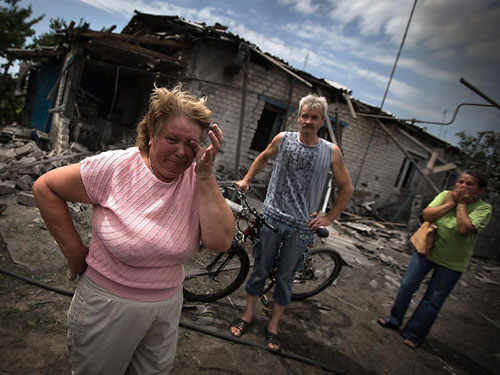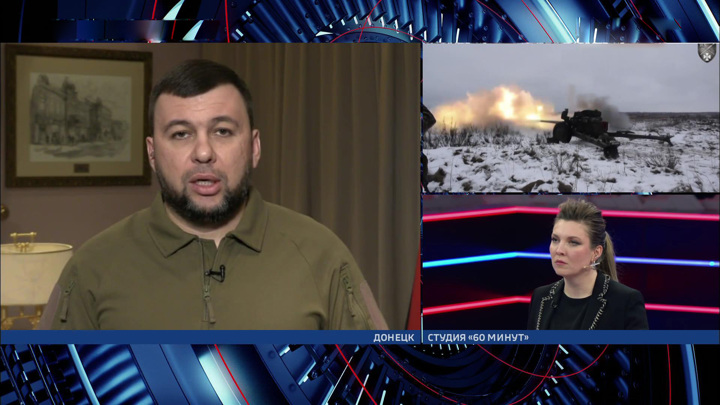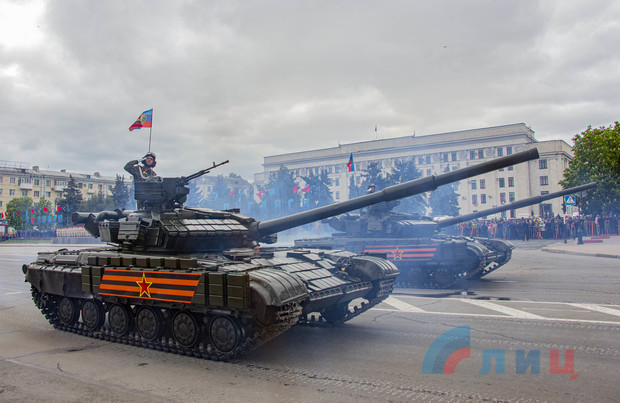Starting from 2015, Stanislav Aseyev worked for different media in his hometown of Donetsk, wring his op-eds mostly for Radio Liberty. On 11 May 2017, the so-called Day of the Republic, local police detained him on his way home from the city center, where Stanislav took pictures and videos for his reportage for Radio Liberty.
The policemen handed him over to the so-called Ministry of State Security (MGB), who tortured him using electricity into signing a confession of him being a spy for Ukrainian military intelligence. In total, Stanislav Aseyev spent about 2.5 years in prisons of the so-called Donetsk People's Republic, Russian-run occupation administration of Donetsk Oblast.
"The prison itself was not a problem if we talk about the official prison. The problem is that most of my captivity I spent at a place that isn't official and has been a secret prison named Izolyatsia. And all the things happening there all the time - during all 28 months - were classic war crimes, which I was witnessing during almost 2,5 years," Stanislav says.
Stanislav Aseyev was released only by the end of 2019 for a prisoner exchange between Ukraine and the "people's republics" of Donetsk and Luhansk.
Now he works in Kyiv as Radio Svoboda Ukraine's journalist and an expert on the occupied Donbas region with the analytic center Ukrainian Institute for the Future's expert.
Checkpoint passage as Russia's bargain chip at Minsk talks
Q.: I heard that in the Donbas, checkpoints on the contact line were closed because of the COVID-19 pandemic, which was making a lot of problems.
Yes, it's true, but it's rather a formal reason because the problem with crossing the delimitation line's checkpoints has always existed, no matter with the coronavirus or without. It's one of the key points of bargaining at the Minsk talks.
In exchange for opening these checkpoints, the other side always demands to solve some political issues. Despite the coronavirus situation, the Ukrainian side has always insisted that it's ready to accept people coming to any checkpoint, but the other side doesn't react to that.
So people who want to get from the occupied to government-controlled territory have to make a roundabout through Russia, so that they enter, for instance, Kharkiv Oblast.
Ex-hostage's anxieties
Q.: What would happen to you if the Russians catch you again?
It would be many times harsher than last time because the only thing I do for the entire two years of my freedom is telling on international platforms about Izolyatsia and war crimes. We have caused great image problems as it casts a shadow on the Russian Federation, which controls that area. And, of course, if I end up in captivity again, they would torture me again, but longer and harsher.
Q.: Are you afraid here in Kyiv or do you feel safe?
I definitely don't feel safe, but I wouldn't call it fear, it's rather an anxiety. deep anxiety. It was my effort, you may know, that contributed to the recent detainment of the chief torturer of Izolyatsia in Kyiv. The Russians don't forgive such things. And I have to be aware of that even here in Kyiv.
Ukraine detains warden of concentration camp of Russian-occupied Donetsk
Russian military buildup near Ukraine
Q.: Can you comment on the situation with tensions with Russia nowadays as they are gathering the troops around Ukrainian borders?
In my opinion, this situation is one of the biggest bluffs in the history of the relations between the West and the Russian Federation. I don't believe that the Russian Federation is now capable of the full-fledged invasion across the entire borderline - I don't mean the occupied territories, I mean the border between Ukraine and Russia.
Firstly, they don't have any rational explanation for that. When it comes to the Donbas, they say "We're not there," but in this case, it wouldn't be possible to give an explanation as to why the Russian battalions entered, say, Kyiv Oblast.
Secondly, this will sever all diplomatic and, which is arguably more important, economic relations of Russia with the West, including Germany and its Nord Stream 2.
But the main reason why I don't believe in this is that Russia remembers Chechnya very well. And if such an incursion happens, they would have a second Chechnya but Ukraine-sized.
Q.: Do you think people in Ukraine are afraid of the full-scale invasion or do they share your opinion?
I think only a minority shares this opinion because our media also worked people up with this situation and the media have put such a spin on this as though it's real, like it may happen just tomorrow. I think that in this case, irrational fears of the majority of the population contributed by the actual situation in the Donbas overwhelm any rational analytical thoughts.
Q.: And a question about the talks NATO, USA, and Russia: how do you comment on the fact that Ukraine doesn't have anyone at the table there?
You know, a question often arises whether the collective West is present at those meetings. Now, the question for Germany or France or other EU countries is "why does the US discuss this situation solely with Russia?" Even the EU is outside this talk, leaving alone Ukraine.
It is happening this way due to the fact that there is no collective position of the collective West. The collective West seemingly exists, but its common position same for Germany, France, the US is non-existing.
And of course, the fact that Ukraine is in some way out of the equation with these negotiations is not good.
Chances of "DNR" hostages for freedom
Q.: Can you tell a bit about the hostages who still remain behind bars in the Donbas, what can help them?
Out of these 300 people, around 40 are prisoners of war. All others are civilians - anyone from businessmen to Ukrainian bloggers who remained in that territory. In these conditions, they all become political "goods," de-facto hostages, they get charged with all the same articles of espionage, terrorism, and extremism. The only thing that can help them is spreading the word: firstly, by making specific names of the imprisoned people known in Ukraine, and internationally, by giving the interviews such as this one.
These four stories show anybody can be jailed in occupied Donbas (and you, too)
Q.: Were all the prisoners swapped in 2019 or they are new prisoners?
No. No exchange was carried out under the all-to-all formula, they have never handed us all people. In December 2019 - it was the exchange of me - they exchanged a little over 70 people, and hundreds still remained there.
Q.: Are there chances for a swap now?
Yes, just because the Russia-US negotiations have been underway, Russia may want to show its so-called goodwill.
Read more:
- Military buildup registered at nearly half of Russian bases at Ukraine’s border in late 2021, satellite image project shows
- Donetsk art center turned into concentration camp: former hostages share their memories
- First public photos of Russian-run Donetsk concentration camp leaked online
- Ukraine detains warden of concentration camp of Russian-occupied Donetsk
- Three warders who tortured prisoners in occupied Donbas “concentration camp” ID’d as Russian citizens
- Facts & figures in occupied Donbas. Is reintegration a realistic prospect?
- These four stories show anybody can be jailed in occupied Donbas (and you, too)
- Prisoner exchange between Ukraine and Russian occupation authorities in Donbas underway – PHOTOS (2020)
- “Three days of torture, then a day off, and over again”: the plight of a Jewish-Ukrainian woman in occupied Donbas
- Zelenskyy’s prisoner swap: should Ukraine rescue its hostages at any cost?
- Ukraine swaps 127 prisoners including defendants of Maidan massacre to 76 Ukrainians held in occupied Donbas (2019)
- Ukraine may swap its 74 hostages in occupied Donbas before New Year (2017)
- I survived the basement prisons of the “Luhansk People’s Republic.” Here is what I saw. Part 1
- 22 days inside the “Donetsk Republic:” a Russian volunteer militant’s story





